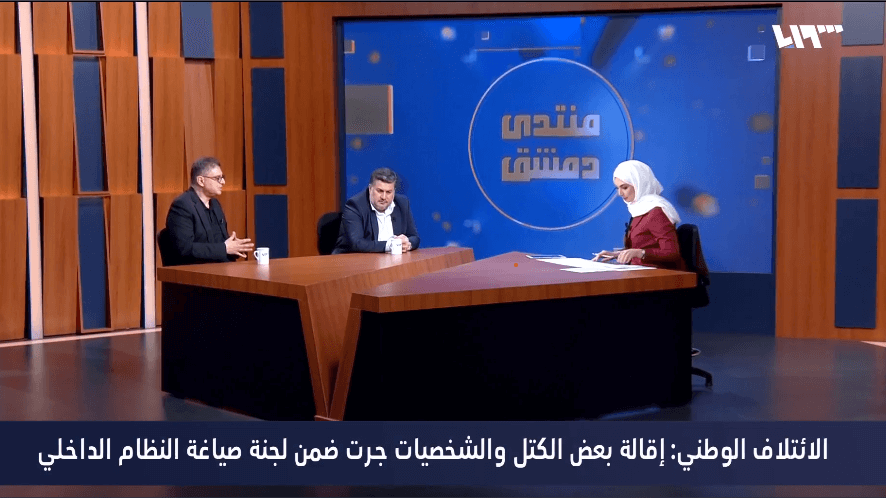Member of the Syrian Opposition Coalition’s (SOC) political committee, Badr Jamous, participated in the Damascus Forum TV show, which was aired on Syria TV on Sunday. It discussed the reforms that the SOC has recently introduced.
Jamous made it clear that the recent reforms included amending the SOC’s by-law and terminating the membership of a number of individuals. He stressed that the decisions obtained the approval of 60 members of the General Assembly at its latest meeting, adding that the General Assembly enjoys complete independence in the decision-making process.
Jamous pointed out that these decisions aim to rearrange the SOC’s internal structure and were not intended to offend outgoing colleagues who spared no effort during the past ten years.
Read Also: Opposition Welcomes UNHCHR Decision on the Right of Families of the Missing
Jamous pointed out that since the establishment of the SOC, several amendments have been made to its by-law. He also said that the latest amendments are the biggest as they covered all paragraphs of the SOC’s by-law, adding that the SOC formed a special eight-member committee that studied the by-law for four months. He pointed out that the amendments were put to vote by the political committee, then were discussed at the General Assembly meeting.
The amendments included a review of the SOC’s components, the duration of the presidency, and an assessment of the effectiveness of members, Jamous said. He added that the new changes reconsidered all the SOC’s political, ethnic, and military components in order to rearrange the effective and influential ones.
Jamous stressed that the recent amendments to the SOC’s by-law did not target a specific component or bloc, but rather covered all components, from the Kurdish National Council, the Turkoman Council, the military bloc, and local councils.
He also stressed that no group within the SOC can control the decisions of the General Assembly, adding that all the SOC’s blocs and components were involved in the decisions the SOC made.
Jamous added that the reform process will continue until the SOC becomes the true representative of the real revolutionary and political forces on the ground and in the diaspora.
This article was edited by The Syrian Observer. The Syrian Observer has not verified the content of this story. Responsibility for the information and views set out in this article lies entirely with the author.


